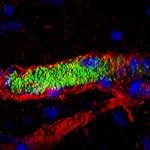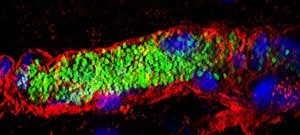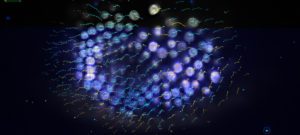My current research focuses on the role of mechanical forces during bacterial infection and their consequences on bacterial physiology and tissue function. This is organized around 3 main axes:
1. Impact of infection on host mechanics: we are currently investigating how adhesion of the extracellular bacterium Neisseria meningitidis on the endothelium impacts force balance mechanisms at the single cell and tissue scale, and how this in turn affects tissue barrier physiology.
2. Bacterial response to mechanical confinement: we study fundamental mechanisms of mechanical sensing used by a variety of bacterial species to sense and respond to the microenvironment, in particular when they face a lack of space. This is the case in biofilms but also during infection of several host tissues, leading to the formation of dense bacterial colonies able not only to survive and accommodate proliferation, but also characterized by emerging properties such as antibiotic resistance and host tissue damage.
3. Growth and morphogenesis of a diplococcus: finally, we scale down to the subcellular and single cell scale to explore fundamental mechanisms involved in defining a specific bacterial cell shape and size and potentially identify new therapeutic targets.
Based on a quantitative, interdisciplinary approach, that combines high-resolution live imaging, microfluidics/microfabrication and image analysis tools together with theoretical modeling, I aim at pursuing the study of the host/pathogen interaction from a mechanical perspective, to understand fundamental processes involved in force sensing, generation and response during infection, and the potential implications in disease outcome.



